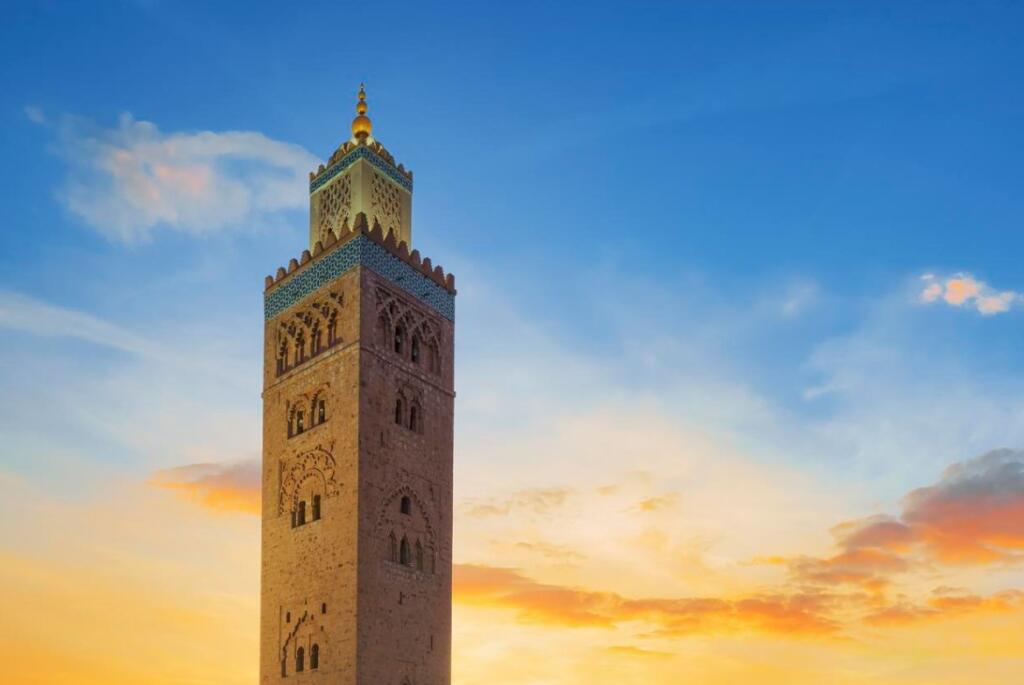Once, the Companions (raḍiy Allāhu ʿanhu) asked the Messenger of Allah ﷺ:
“O Messenger of Allah, is our Lord near so we may whisper to Him, or far so we should call out loud?”
Allah ﷻ sent down the verse:
وَإِذَا سَأَلَكَ عِبَادِیْ عَنِّیْ فَإِنِّیْ قَرِيْبٌ أُجِیْبُ دَعْوَةَ الدَّاعِ إِذَا دَعَانِۖ فَلْيسْتَجِیْبُوْا لِیْ وَلْیُؤْمِنُوْا بِیْ لَعَلَّهُمْ یَرْشُدُوْنَ
“And when My servants ask you concerning Me, indeed I am Near. I respond to the call of the supplicant when he calls upon Me. So let them respond to Me and believe in Me that they may be rightly guided” (2:186).
Allah revealed that He is Near, and that His nearness doesn’t require loud supplication. Instead, it invites quiet, sincere munājāh: the humble, intimate whisper of a heart that knows its Lord is near.
Reflections on This Great Ayah
- There is deep wisdom in the wording of the verse. Allah uses the phrase ‘when’ (إِذَا), which refers to the future, indicating that the door of duʿā’ is always open. His response is not limited to the past; rather, He remains ever-ready to listen and respond at any moment. His generosity and kindness are ongoing and not confined by time.
- Allah refers to those who call upon Him as “My servants”, which is an expression of both honour and dependence. Everyone in the heavens and the earth is His servant, under His authority and care. The very nature of servitude is marked by need, helplessness, and complete reliance on the Master. No soul can do without Allah, not even for the blink of an eye.
- This verse is placed right after the verses about fasting, and that too holds significance. Fasting is one of the acts most associated with sincerity and humility, two key ingredients for accepted duʿā’. Ramaḍān is a special time when hearts soften, egos humble and prayers are answered.
- In this verse, we sense the deep and intimate closeness that Allah shows to His servant. It is as though He is saying: “If My servant asks about Me, O Muḥammad, do not respond on My behalf. Though you are My Messenger, this is something I will answer Myself: I am near.” It is as if He is saying: “My servant, you do not need any intermediary in duʿā’. At this moment, there is no veil between you and Me.”
- The phrase “Indeed, I am near” implies the speed and certainty of His response.
- This nearness is not general to all creation. Rather, it is a special nearness to those who call upon Him and worship Him sincerely. This nearness brings love, support, mercy, and divine assistance. The reality of this nearness cannot be fully grasped, but its effects are seen through His kindness to His servants, His help, His guidance, and His response to their duʿā’.
- His Name al-Qarīb (The Near) is often paired with al-Mujīb (The Responder), highlighting a deep truth: because He is near, He answers. Allah responds to all who call upon Him regardless of who they are or where they are.
- Among the most powerful supplications He answers are those of the desperate; those who have lost all hope in creation and turn to Him alone, filled with longing and fear.
- When Allah says, “when he calls upon Me,” He refers to the one who truly feels his need for Allah, believes that Allah alone has the power to help, and turns to Him with a heart untainted by attachment to others. That is the kind of duʿā’ that brings about His response.
- Finally, the verse makes clear that answered duʿāʾ is connected to obedience. Those who answer Allah’s call by submitting to His will are the ones promised an increase from His bounty. As Allah says: “And He responds to those who believe and do righteous deeds, and increases them from His bounty” (42:26).
Imām Aḥmad (rahimahullah) was asked, “What is the distance between us and the Throne of Allah?” He replied, “A sincere duʿā’’ from a sincere heart.”
Calling the Ever-Near
Abū Mūsā al-Ashʿarī (raḍiy Allāhu ʿanhu) narrates: “We were with the Messenger of Allah ﷺ during an expedition. Whenever we ascended a high place, we would raise our voices saying: ‘Allāhu Akbar, Allāhu Akbar, Lā ilāha illa Allāh.’ The Prophet ﷺ said, ‘Take it easy on yourselves, for you are not calling upon one who is deaf or absent. Rather, you are calling upon One who is All-Hearing, Ever Near, and He is with you…’” (Bukhārī).
Allah is intimately near to us all and His nearness does not require raised voices. His closeness means He hears the softest whisper, the unspoken thought and the quietest plea from the heart. This was what Prophet Zakariyyā (ʿalayhis-salām) understood, whose supplication Allah praised with the words: “When he called upon his Lord in a low voice” (19:3).
When we feel distant from Allah, it often affects the way we call upon Him and what we expect in return. Allah is al-Qarīb and He tells us: “And He is with you wherever you are” (57:4). He invites us to draw near to Him, promising that His door is never closed to those who seek Him.
The Nearness and Generosity of Allah
Think of the one closest to you: your parents, your children, or your dearest friends; those who understand you, support you, and are there when you need them. Allah is closer to you than any of them could ever be, more loving, more generous, and more attentive. He is always Near, always listening and always responding. Unlike our loved ones, who may want to help but are limited in their ability and means, Allah is All-Capable and Rich beyond measure, able to fulfill every need and answer every sincere call.
Allah’s nearness is the nearness of a Lord who gives, sustains, and provides without limit. The treasures of the heavens and the earth are in His Hands: “To Him belong the keys of the heavens and the earth” (39:63). And the Prophet ﷺ said, “The Hand of Allah is full (i.e. it is overflowing with generosity); no spending diminishes it. It overflows night and day. Have you seen what He has spent since He created the heavens and the earth? Yet what is in His Hand has not decreased” (Bukharī).
Think about the vastness and magnitude of Allah’s generosity to all of creation throughout history. Every provision given, every blessing bestowed, every need fulfilled; all of it flowing from His endless bounty. And yet, despite this unimaginable giving, what is in His Hand has not diminished in the slightest. Allāhu Akbar!
Connect to al-Qarib
Allah’s closeness is not distant or abstract; it is intimate, accessible, and deeply personal. We can experience this closeness most strongly at two special times:
1) In the Last Part of the Night
The Prophet ﷺ described a sacred moment that occurs every night:
“Our Lord – Glorified and Exalted is He – descends every night to the lowest heaven when one-third of the night remains and says, ‘Who will call upon Me, that I may answer Him? Who will ask of Me, that I may give him? Who will seek My forgiveness, that I may forgive him?’” (Bukhārī).
He ﷺ also said: “The closest the Lord ever is to the servant is in the last depth of the night. If you can be amongst those who remember Allah at that time, then do so” (Tirmidhī).
What a powerful invitation from the King of kings: to call upon Him while the world sleeps, and to be met with His closeness, generosity, and forgiveness.
2) In Sujud
Another moment of deep closeness to Allah is during prostration. The Messenger of Allah ﷺ said, “The closest a servant is to his Lord is when he is prostrating, so increase your supplications” (Muslim). Allah ﷻ says, “And prostrate and draw near [to Allah]” (96:19).
Both of these occasions offer a unique opportunity to experience a closeness that revives our ailing hearts and allows us to taste the sweetness of īmān.
Ibn al-Qayyim (raḥimahullāh) writes, “It is not surprising that a servant humbles himself before Allah, worships Him sincerely, and never tires of serving Him, given his desperate need for his Lord. What is truly astonishing is that the Sovereign Lord lovingly draws near to His servant, showers him with countless blessings, and overwhelms him with His mercy and kindness, despite being completely free of any need for him!
It is enough of an honor for you that you are His servant, and it is enough of a source of pride for you that He is your Lord.”






